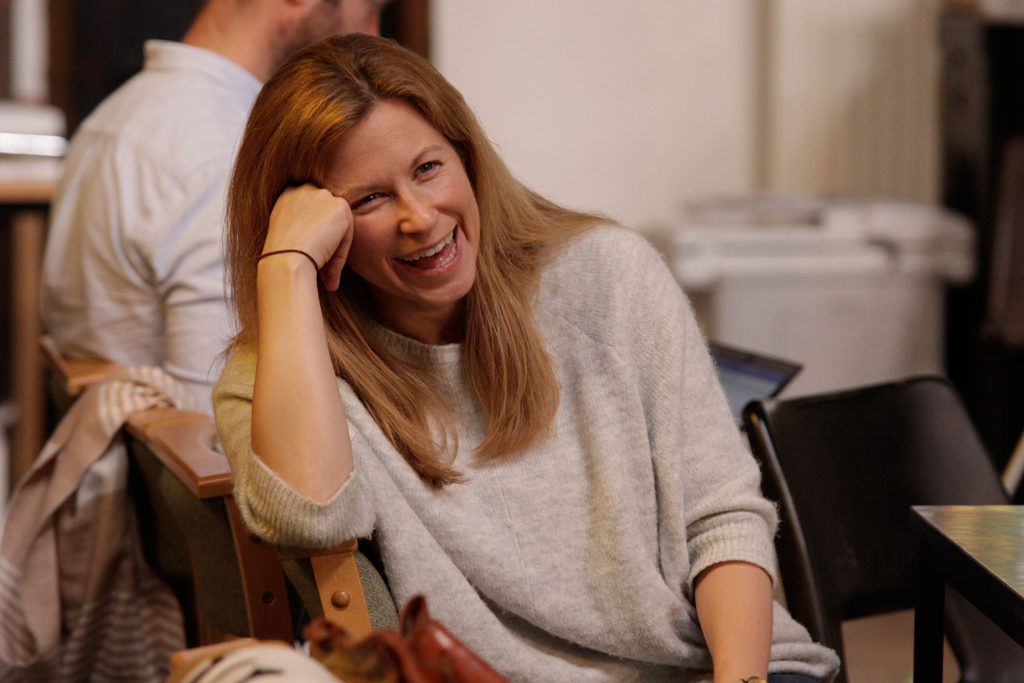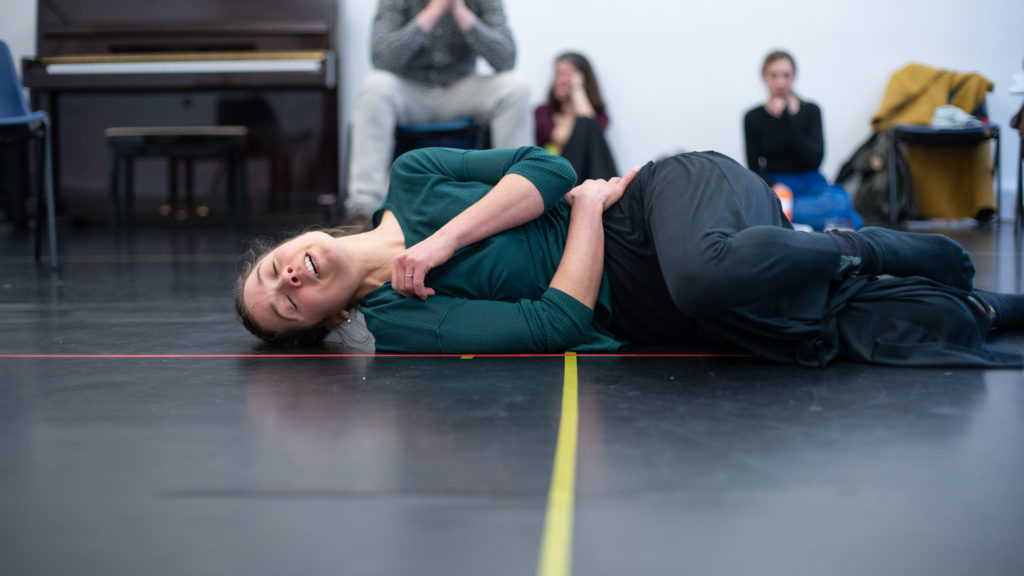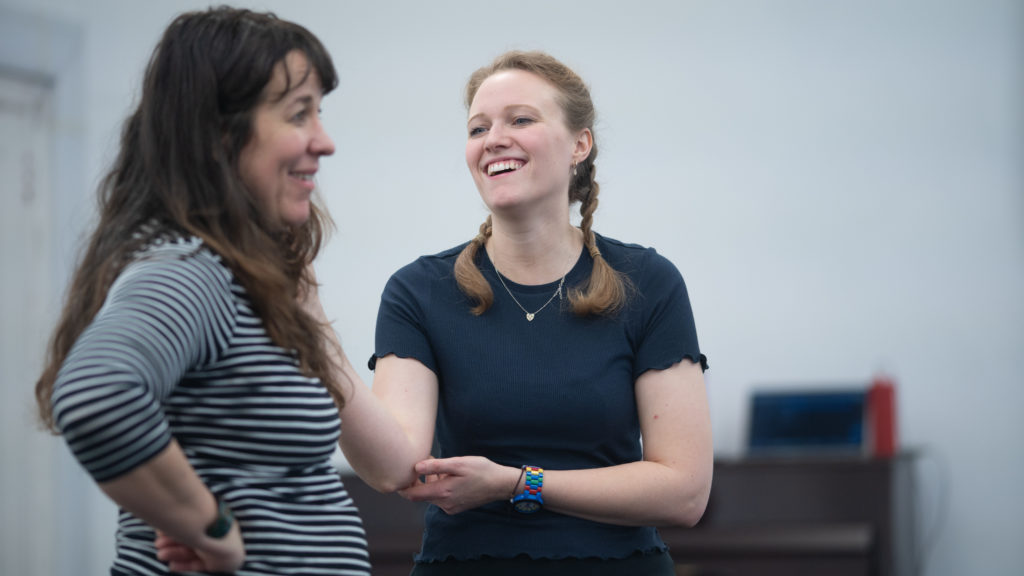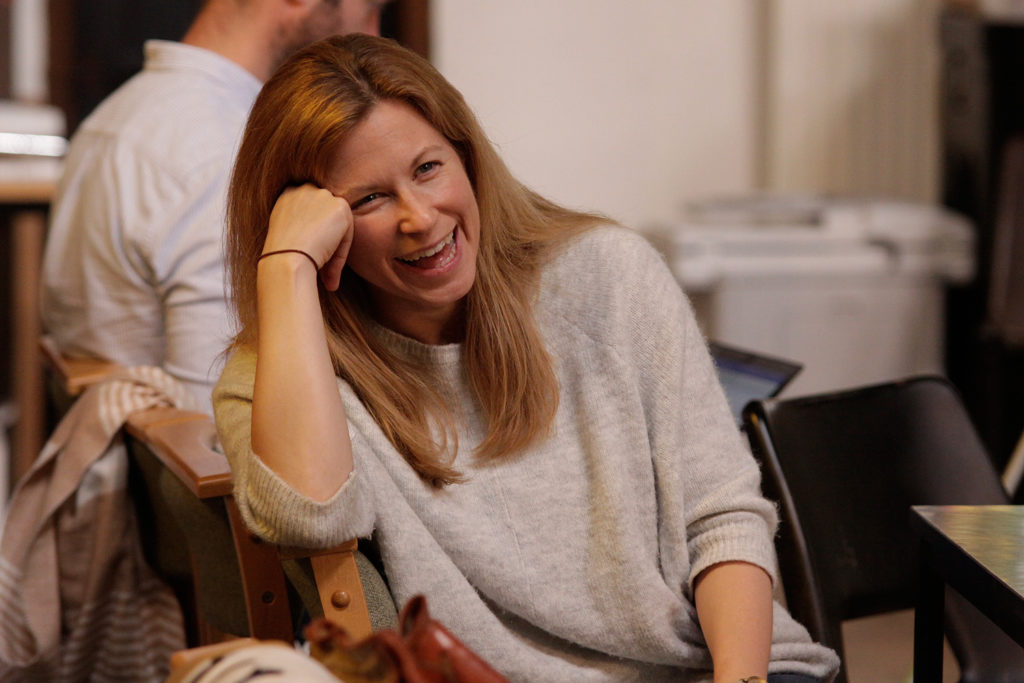
REVIEW: The Ballad Of Maria Marten, Eastern Angles/Matthew Linley Creative Projects, Stephen Joseph Theatre, Scarborough, today at 7.30pm. Box office: 01723 370541 or at sjt.uk.com
INCREASINGLY, touring theatre needs the support of partners to sustain companies. Productions as extraordinary, brilliant and powerful as this one are the vindication for encouraging more such partnerships.
Scarborough’s SJT has the “in association” role in The Ballad Of Maria Marten, and any company would be delighted to play in The Round, the 360-degree theatre experience that adds so much to each Alan Ayckbourn premiere every Scarborough summer season. Eastern Angles thrive.
Elizabeth Crarer emerges from the side as the lights are still up, cutting across the hum of audience chatter. She is holding a decayed, fraying umbrella, her clothes are worn and masculine; blood and bruises are on her face.. We take all this in slowly and are instantly riveted.
We learn she is Maria Marten, the besmirched murder victim at the heart of Beth Flintoff’s play about the notorious Red Barn Murder. The defence case of the murderer, disreputable squire, William Corder, has oft been told, but not Maria’s.
How do you solve a problem like Maria’s void? By telling her story, and more particularly her back story from childhood, and as we all know there are two sides to every story, but not always in the courtrooms of a male-dominated society, such as the one that ruled Polstead in rural Suffolk in the summer of 1827, where a woman’s sole goal was to marry.
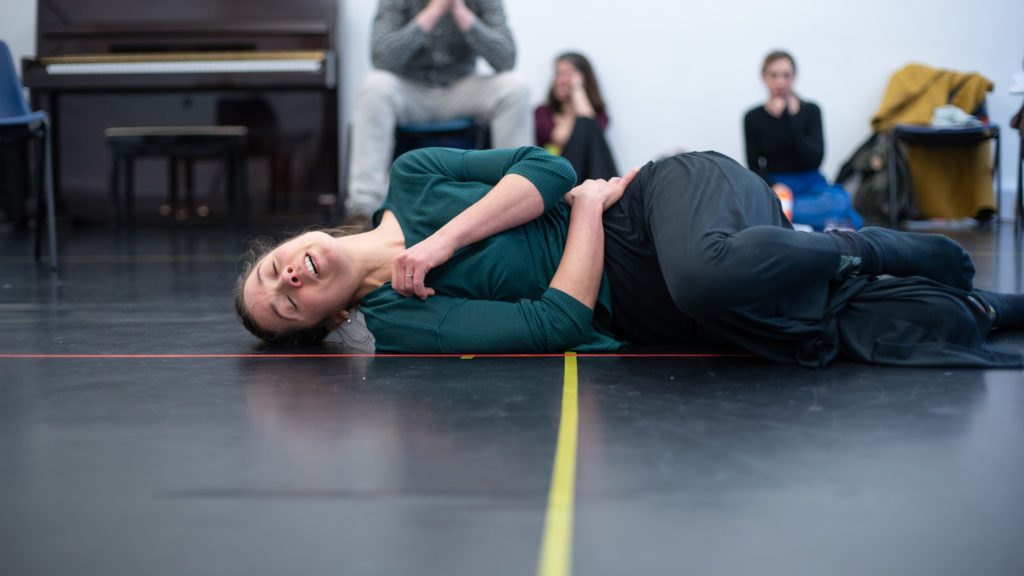
Elizabeth Crarer in rehearsal for The Ballad Of Maria Marten. Picture: Giorgis Media
The rest of Hal Chambers’ cast – Suzanne Ahmet, Emma Denly, Jessica Dives, Sarah Goddard and Susanna Jennings – descend from the auditorium stairways, one by one, all female (although two will go on to play men), and the ensemble nature of Flintoff’s storytelling is quickly established.
All the ingredients are outstanding: Flintoff’s prescient and engrossing writing; Luke Potter’s enveloping score; the cast’s compelling performing and beautiful singing, so individual yet collective; Zoe Spurr’s superb lighting; Verity Quinn’s minimalist set design, with the cast briskly moving whatever needs moving from scene to scene. In particular, Rebecca Randall’s movement direction is so key to the drama, using The Round to its maximum.
The title, changed from the original and too plain Polstead when this play premiered in 2018, is apt. The piece does indeed have the character of a ballad, being more of a folk play, even a Mummer’s Play, than the melodrama that usually prevails in Red Barn Murder re-tellings.
We know from the start that Maria is dead, and so The Ballad Of Maria Marten is a resurrection of sorts, like in Mummer’s Plays and in the depiction of fellow murder victim Sharon Tate in Quentin Tarantino’s Once Upon A Time In Hollywood last year. Note, too, how Maria now has her name in the title.
Rather than a manhunt detective story, piecing together the evidence from Maria’s body being found a year after she went missing, Flintoff fills the stage with the intricacies of her life story, with humour and darkness, joys and sadness, hopes and dashed dreams, in equal measure, the childhood shaping the adulthood that follows.
“I didn’t want her to be a victim any more. Maria emerged as
intelligent,
brave and wryly funny,” said Flintoff beforehand. “How are we going to let
women speak for themselves when there is so much history of being ignored?”
By writing such a ground-breaking play in changing times certainly helps. Maria is indeed no longer a victim, and Flintoff’s sense of optimism for the future is the closing emotion of a ballad play that truly sings.
Charles Hutchinson

